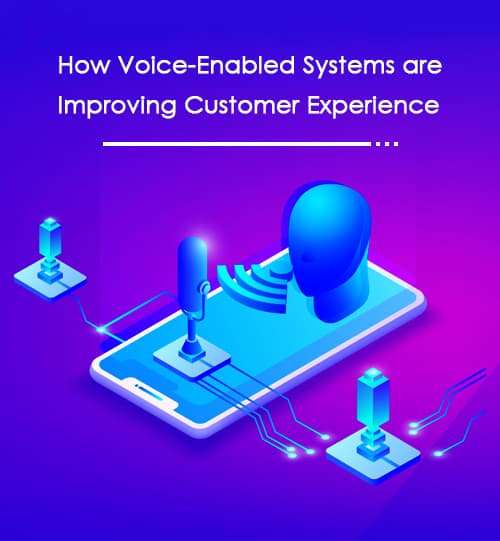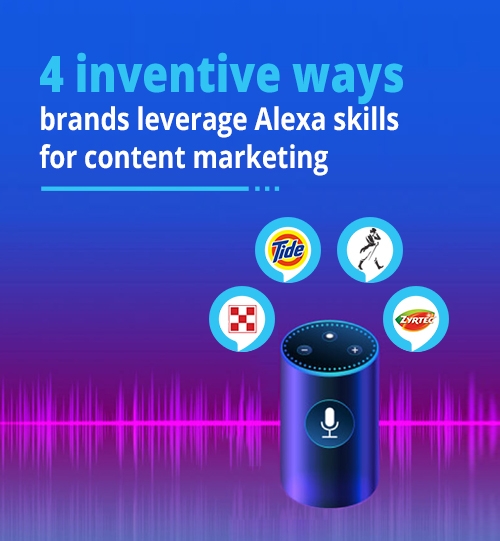The voice-enabled assistants have shaped the way we connect with the devices. They allow users to order food, play music, manage calendars, set the alarm, book a cab, and more with voice commands. Thanks to the Alexa skills and voice user interface (VUI) that offer an intuitive way to facilitate communication between a human and a machine.
With digital voice assistants having so much potential to enhance the user experience, businesses from almost all the industries are investing heavily in the VUI and Alexa skill developers to create the best voice-enabled solutions. Over time, industries, including retail, healthcare, food, and more, are leveraging this technological advancement to offer the best consumer experience.
Here, we will discuss how these voice-enabled solutions are revolutionizing the businesses by taking customer experience to new heights.
Let’s dive in.
Impact of voice-enabled systems on customer experience
A user spends 2-4 hours on their phones on a daily average. With a majority of mobile users, businesses must adopt voice technology to enhance the user experience. Voice-enabled systems may include Alexa skills specially designed for smart AI-powered speakers or incorporation of voice assistants with mobile apps. The core technology used in this solution is Natural Language Processing (NLP) that allows devices to recognize the human voice and respond accordingly.
Some of the inventive ways businesses are using voice solutions to enrich customer experience and improve conversion rate are:
Hands-free Cooking Assistant
Nestle, the world’s largest multinational food and beverage organization, has an Alexa Skill named “GoodNes.” The skill is integrated with a visual guide, which connects to users’ web browser on their device to provide visual voice browsing. The customers can use this Alexa skill to search recipes by giving voice commands and prepare their meal by obtaining the results in voice and visual form.
Voice Ordering System
Dominos, the globally famous pizza restaurant chain, has brought forth an Alexa skill that allows customers to place an order for pizza without a single tap on the screen. Besides placing the order, they can also repeat last/favorite order, track their order, call delivery agent, and more.
Simplifying Hospitality
Marriot Hotels, the largest hotel chain, has incorporated Alexa skills into their Amazon Echo devices. Guests use these skills to control room temperature, turn on/off the lights, close drapes, etc. Thus, the voice-enabled systems help hotels to enhance the guest experience by improving their services.
Home Healthcare
Libertana Home Health Care recently launched its own Alexa skill for elderly patients. This skill has multiple helpful capabilities like sending notification about the patients’ health status to their family, ensuring patients that they have their medications on time, and so on.
Finance/Asset Management
Capital one, a bank holding company in the US, introduced an Alexa Skill to offer end-to-end management of personal finances and transactions of the customers. It eliminates the hassle of always keeping track of their assets. Thus, other major banks are also planning to avail Alexa skills development services to offer similar consumer-centric services.
Conclusion
By and large, we have only shed light on the beginning of what voice-enabled assistants and other voice-related technologies can bring to the table. Besides the examples above, there are a bevy many useful Alexa skills for different industries, improving the consumer experience.
Since customer satisfaction is paramount, businesses from all the industries should embrace a voice-enabled system to enhance customer experience and thrive in this competitive era. Another aspect to take note of is to approach experienced Alexa skill developers to embark on your voice journey and create a frictionless voice-enabled solution for your business.




